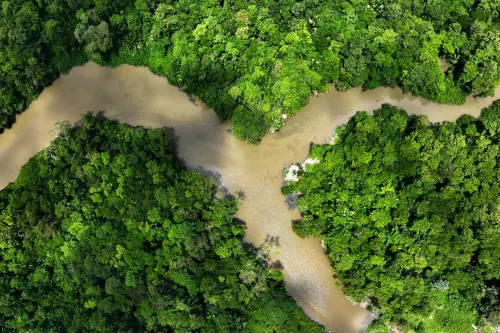Countries are gathering in Rome this week for a second attempt at devising a plan to raise $200 billion annually to preserve nature and bolster global cooperation amidst the United States' retreat. Concerns have arisen due to recent decisions to withdraw development funding, even though the U.S. is not officially involved in the initiative.
Following the 2022 Kunming-Montreal Global Biodiversity Framework agreement, a meeting in Cali in October aimed to determine the funding sources. Despite establishing the 'Cali Fund' to gather money from companies benefitting from nature's genetic resources, negotiations stalled on cost-sharing and fund management.
The urgency is magnified by a 73% decline in vertebrate wildlife populations since 1970, as reported by WWF. Challenges persist in persuading wealthier nations to support financially struggling counterparts amid reduced willingness to provide aid or loans amidst rising living costs.
With only $163 million pledged post-Cali, far below the annual target of $30 billion by the decade's end, expectations for substantial financial commitments in Rome are limited. The lack of transparency in contributions towards nature preservation is a concern.
The risk of the Rome talks collapsing is high, obstructing Brazil's efforts to align nature conservation with climate change mitigation at the upcoming global climate talks in Belem. The U.S.' recent policy shifts, despite not participating in the U.N. Convention on Biological Diversity, could influence global funding initiatives negatively.
Calls to prioritize biodiversity finance, neglected for too long, are gaining momentum. Participants must transcend political disagreements to seize this potential turning point, as stressed by Oscar Soria, co-CEO of NGO The Common Initiative, urging nations to strive for a sustainable future.
Disputes over financial responsibility persist, with developing nations urging the major contributors to biodiversity loss in wealthier nations to bear the brunt, while European nations advocate for increased contributions from emerging economies and sovereign wealth funds.
Pressure is mounting to diversify funding sources beyond grants, including development bank loans, domestic revenue, and private sector investments. Discussions also revolve around redirecting the estimated $500 billion yearly spent on harmful projects towards nature-friendly initiatives.
Decisions on fund management are pending, whether to establish a new fund or utilize existing mechanisms like the Global Biodiversity Framework Fund run by the Global Environment Facility (GEF). Divergence exists regarding fund management preferences, with Europe supporting the GEF while other nations advocate for a new system.
The absence of side events limits business participation, though the formal launch of the Cali Fund is anticipated, with potential financial commitments.
